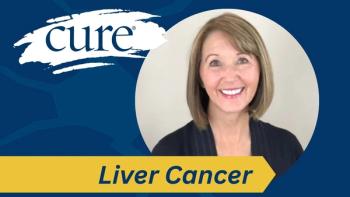
American Liver Foundation Seeks to Address Current Issues in Liver Health
There are currently 30 million Americans with some form of liver disease. Through education and advocacy, the American Liver Foundation wants to decrease that number.
For many people, the specter of liver cancer can hide behind a host of other liver diseases.
Currently, there are approximately 30 million Americans with some form of liver disease. Of these individuals, there are as many as 25 percent with non-alcoholic fatty liver disease, with some evidence of the condition even being seen in children.
Fatty liver disease can progress to more serious illnesses, including liver cancer. These factors make it vital for patients to seek out help for liver conditions as soon as possible.
“The American Liver Foundation considers itself the trusted voice for patients with liver disease,” said Lynn Seim, the executive vice president and COO of the American Liver Foundation (ALF). “So we consider ourselves the go to source for information, education, and support services.”
With 14 staffed divisions across the United States, the ALF looks to facilitate, advocate and promote the education, support and research for liver cancer.
A cornerstone of ALF support services is their national help line, 1-800-GO-LIVER, which receives about 6,000 calls each year from patients and family members seeking information and guidance.
The foundation also provides numerous educational programs held by staff across the country.
Among these programs are:
- The Viral Hepatitis Program, which includes hepatitis C.
- The Liver Wellness Education Program, which teaches adults about their liver and how to maintain its health.
- Teens to Twenties: Liver Wellness Guide, which teaches older teens and college age students about liver health and risk behaviors that can affect their liver.
- Love Your Liver, which is geared towards educating children in grades 3 through middle school on general liver wellness.
- Although all of these programs are beneficial to patients, hepatitis in particular is a tremendous concern in the United States. “There are as many at 4 million Americans living with hepatitis C, and many are unaware that they have the disease.” Seim said. “Untreated hepatitis C is a leading cause for liver failure and a key indicator for liver transplants. Hepatitis C kills more Americans each year than HIV and it’s much more common.” Individuals who are part of the baby boomer generation, born between 1946 and 1964, have a higher risk for viral hepatitis. Furthermore, the rising heroin epidemic within the country is putting millions of more Americans at risk for liver damage that could lead to cancer. “The viral hepatitis education program is extremely important, but we touch on that through all our other adult programs as well,” Seim said. “The issue of viral hepatitis is certainly a tremendous concern in this country. We know that calls about hepatitis C comprise the majority of calls to our national help line.” The ALF is also involved in supporting research, with nearly $25 million awarded to date for young investigators in the early stages of their research careers. Additionally, in 2014 the ALF created the National Patient Advisory Committee (NPAC) to give patients a voice. “We began that NPAC with a cohort of approximately 30 patients with hepatitis C in various stages of non-treatment, treatment and cure,” Seim said. “That concept of a National Patient Advisory Committee to inform us, to be trained, and be ready to be that patient voice is a very important concept at the American Liver Foundation.” These patients were trained on various aspects of advocacy and media relations in order to give other patients a voice. The process of expanding the NPAC to include other diseases beyond hepatitis C is currently underway and will include those suffering from rare liver diseases, such as primary biliary cholangitis and fatty liver disease. Several goals of the ALF for 2016 are to raise awareness for the various forms of liver disease, including rare liver diseases, as well as the issue of liver transplants and organ donations. The ALF will also continue to advocate for liver cancer, which is currently on the rise. “We’ve had a very successful liver cancer awareness campaign both in 2014 and 2015 in October, which is liver cancer awareness month,” Seim said. “We will continue to address liver cancer in our advocacy and public education efforts.” Seim stresses the importance of patients taking control of their diagnoses and getting involved with advocacy groups. “It’s very important for patients to take an active role to understand what their treatment is and to establish an effective relationship with their health care provider, so that they can take advantage of the treatment regimen, properly manage the treatment, and be aware of any issues that may arise during treatment,” she said. “I think it’s important for caretakers to also know that an advocacy organization can provide support to them in the management of their family or loved one with liver disease. There are available resources to assist them and they’re not alone."




